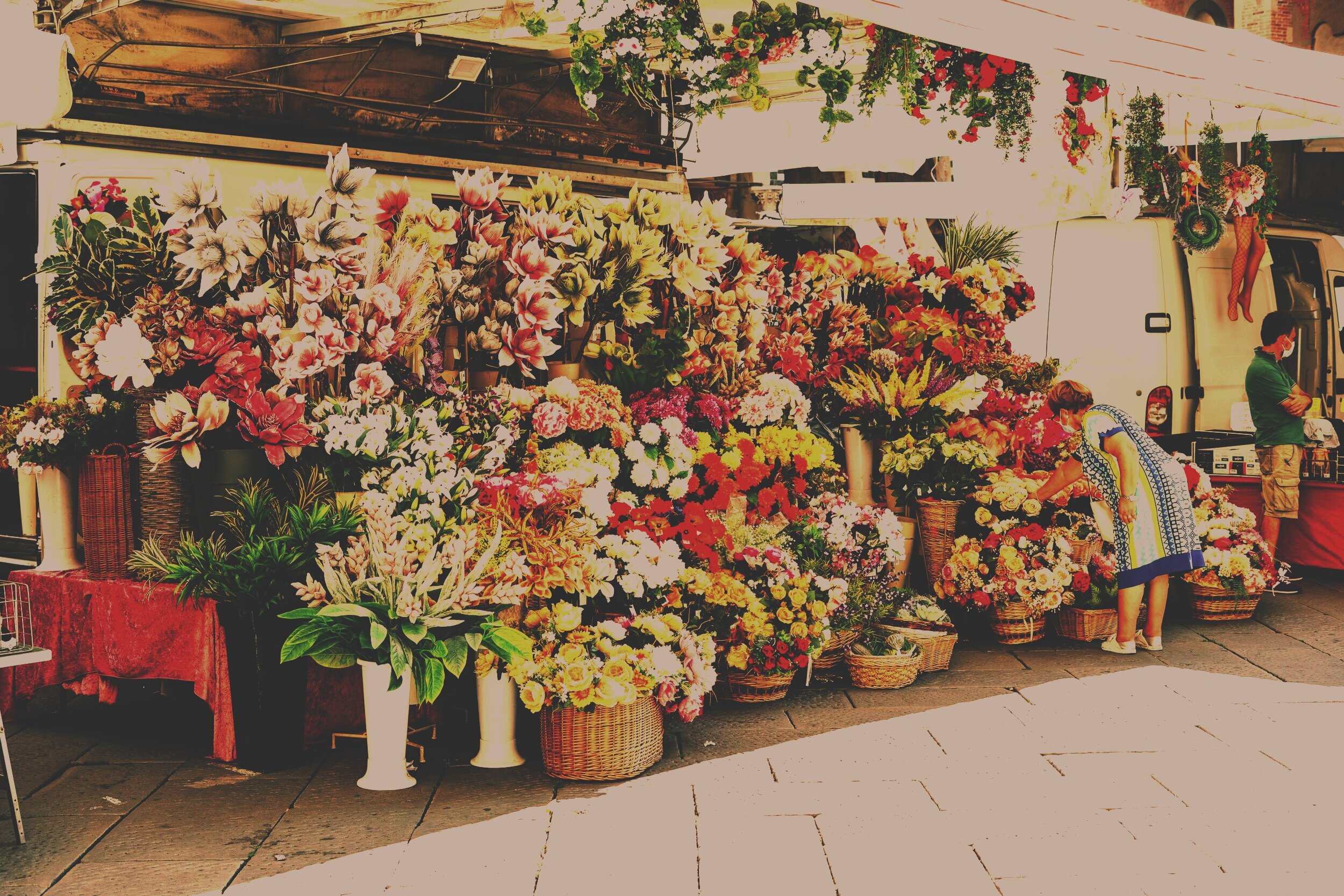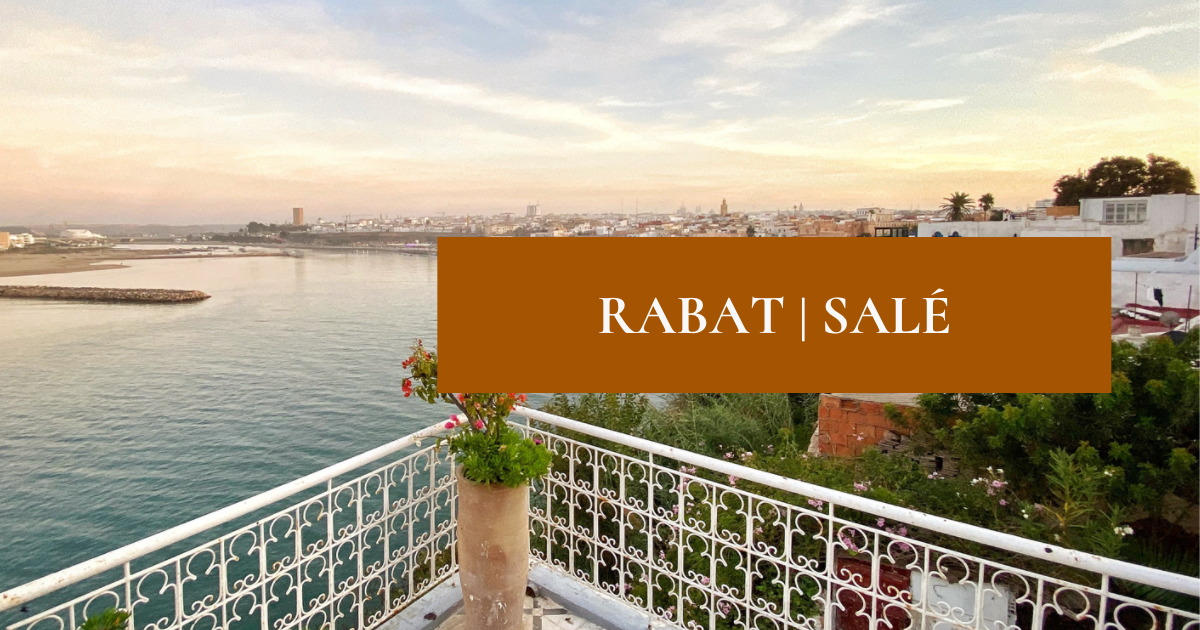Spending Money in Morocco
“A country where flowers are priced so as to make them a luxury has yet to learn the first principles of civilization.”
-Chinese Proverb
Updated November 2, 2022
Smiles spread across our faces as we depart from the flower stand. My wife and I have just experienced Moroccan hospitality from a friend who sells us flowers at an extremely discounted rate. Every couple weeks we try to visit this friend at his flower stand in Casablanca. Like many types of businesses in the country, vendors selling one type of product are located next to one another. As a result, our friend operates a flower stand among a group of five other stands. On this particular occasion, we end up leaving with handfuls of roses, lilies, and pampas grass; as we tried to tip the employees, they pulled out a dozen roses to compensate us for our own attempt at generosity.
“That’s bad capitalism,” our Western minds think.
“That’s how we take care of people here,” our Non-Western friends respond internally.
And as a result we end up filling our apartment with an array of beautiful, inexpensive flowers from our generous friends.
If you plan to visit or live in Morocco, it is helpful to know some of the customs related to money. This is a country where flowers are not necessarily a luxury item, but where some of the customs related to money may be different from your home civilization. Here are some pointers to help you during your visit.
Everything You Need to Know about Spending Money in Morocco
Currency - The official currency in Morocco is the Dirham (MAD or DH), and prices will typically be given in this currency. One exception is if you end up shopping at a local marketplace, where prices may be given in riyals (ree-yals). One dirham is equal to 20 riyals, so don’t be surprised if your produce costs 480 [riyals]. Most of my market friends have calculators nearby to show me that my items will cost 24 Dirhams. .
Credit Cards - Morocco is primarily a cash-based society. While you are most likely to use cash while in Morocco, there are some places to use a debit/credit card. These places include hotels, nicer restaurants, commercial grocery stores, and some souvenir shops. When operating the keypad to finalize your purchase, you are more than likely going to want to pay in Dirhams and let your local bank do the currency transaction for you. For my wife and I, when we check out at the grocery store, we always select to pay in MAD rather than USD, because we will get a better exchange rate. Additionally, make sure that the correct price has been selected in the keypad, so as to avoid an unexpected surprise when you receive your monthly statement.
Prices - In certain places in Morocco you will discover that prices are not marked. This is common in convenience stores (hanouts), souvenir shops, hair salons, hole-in-the-wall restaurants/bakeries, flowers stands, local marketplaces, and grand taxis. As I type that list, I realize that these places represent the majority of places to do business here! In contrast, you will find marked prices in larger commercial stores, restaurants, and toll booths. After a while, you start to know how much certain items cost, so it is no longer a guessing game. However, at the beginning you will need to ask the shop owner for prices, or ask a local how much something will cost.
Bartering - Negotiating a price is common practice in Morocco, and honestly, I am not very good at it! Local Moroccans will inquire about prices, comment on the quality of the product, and try to negotiate a price. There are certain places that you cannot negotiate, like larger commercial stores, restaurants, and toll booths. I like to have fun when checking out at those places and ask the employee to lower the price; this oftentimes gets a chuckle. For people who are skilled at bartering, I have heard that it can be fun - I will take their word for it! In my experience, bartering is not a skill that most Westerners have acquired, so it can feel a little strange. Here are some tips to honor the vendor:
Sellers will typically lower the stated price a little, but not by 50% or any crazy amount. The seller’s initial price will give you an idea of the price range for the product, and if your counteroffer is completely off base (10-20% of the asking price, for example), then you are likely to offend the seller. I always assume that the shopkeeper is not going to sell the item at a loss, so don’t worry about undercutting them once you have agreed upon a price. In general, it is easier to negotiate when you are buying a higher quantity of items.
The worldwide pandemic has hit tourist-friendly Morocco very hard, so you may encounter people who seem desperate to sell you something. Some of these people may come alongside you and negotiate as you are walking. After a little bartering, they may ask you, “How much will you pay for this item?” If you truly don’t want the item, then just be kindly firm that you do not want it. However, if there is a price that you feel comfortable paying, then state what it is and pay that price if the vendor agrees.
Tipping - When it comes to tipping, I find it helpful to have a generous attitude. Generally, local Moroccans who receive the tip are not making very high wages, so a little tip can go a long way. Here are some places where tipping is normal:
Cafes/restaurants - a few dirhams, or up to 10% of the final bill (tax is minimum to none on food and is included in the stated price, so you shouldn’t have to worry about the tax amount when calculating the percentage). Also, make sure you give the tip directly to the server and do not leave it on the table. This is not to pat yourself on the back, but rather to assure that the money is received by the intended person.
Hotels - Anyone who touches your bags should be given a tip. 20 Dh per room is appropriate to pay the porter who brings the bags to your room. If you hire one of the men in the medina who push luggage carts, then 20 Dh per cart is standard, or if you have more items and are feeling generous, then up to 50 Dhs. Also, it is common to leave a tip in the room for the cleaning people, as well as for the breakfast staff. In some hotels, you may see a box in the lobby or near the front desk where the hotel recommends you leave your tip.
Transport - If you have arranged private transportation, it is customary to tip the driver anywhere from $7-15 USD per person per day (converted to local currency).
Tour Guides - It is customary to tip your tour guide when on an official tour. You should always give at least 50 Dh, and for larger groups the tip should be about the same price as the tour itself.
Other - You may find yourself in other situations where a tip is standard (shoe shine, gas tank carrier, etc). One time my wife and I visited the post office to send a package to the United States. An older gentleman took 5-10 minutes to tape our box, and I gravely offended him by offering 10 Dh in coins. In my mind I had done the calculation to figure out his daily wage based on my tip, and I had given him a satisfactory amount (60-120Dh per hour is a great wage in Morocco!). However, I later learned that you tip the person (and their status) and not the job they did. Because he was older, I needed to give him “paper” (a 20 Dh bill), rather than coins. However, had the job been performed by a young man, 10 Dh in coins would have been acceptable.
For myself, navigating through financial situations is where I feel the most cultural tension, especially if I feel that someone is trying to take advantage of me. However, I find that an attitude of generosity helps to curb those friction points. We hope that your time spent in Morocco is filled with flowers and generosity.
Are you visiting Morocco soon? Start your travels with us to learn some Moroccan Arabic phrases and cultural dos and don’t and to have the best trip available to you.



































Morocco is a very unique country for several reasons. The first is its strategic location in the northwest of the continent of Africa, just 14 kilometers south of Europe. This beautiful country is bordered by the Mediterranean Sea in the North, the Atlantic Ocean in the West, Algeria to the East, and Mauritania to the South. For this reason, Morocco is a crossroads where cultures, civilizations, and ethnicities meet.